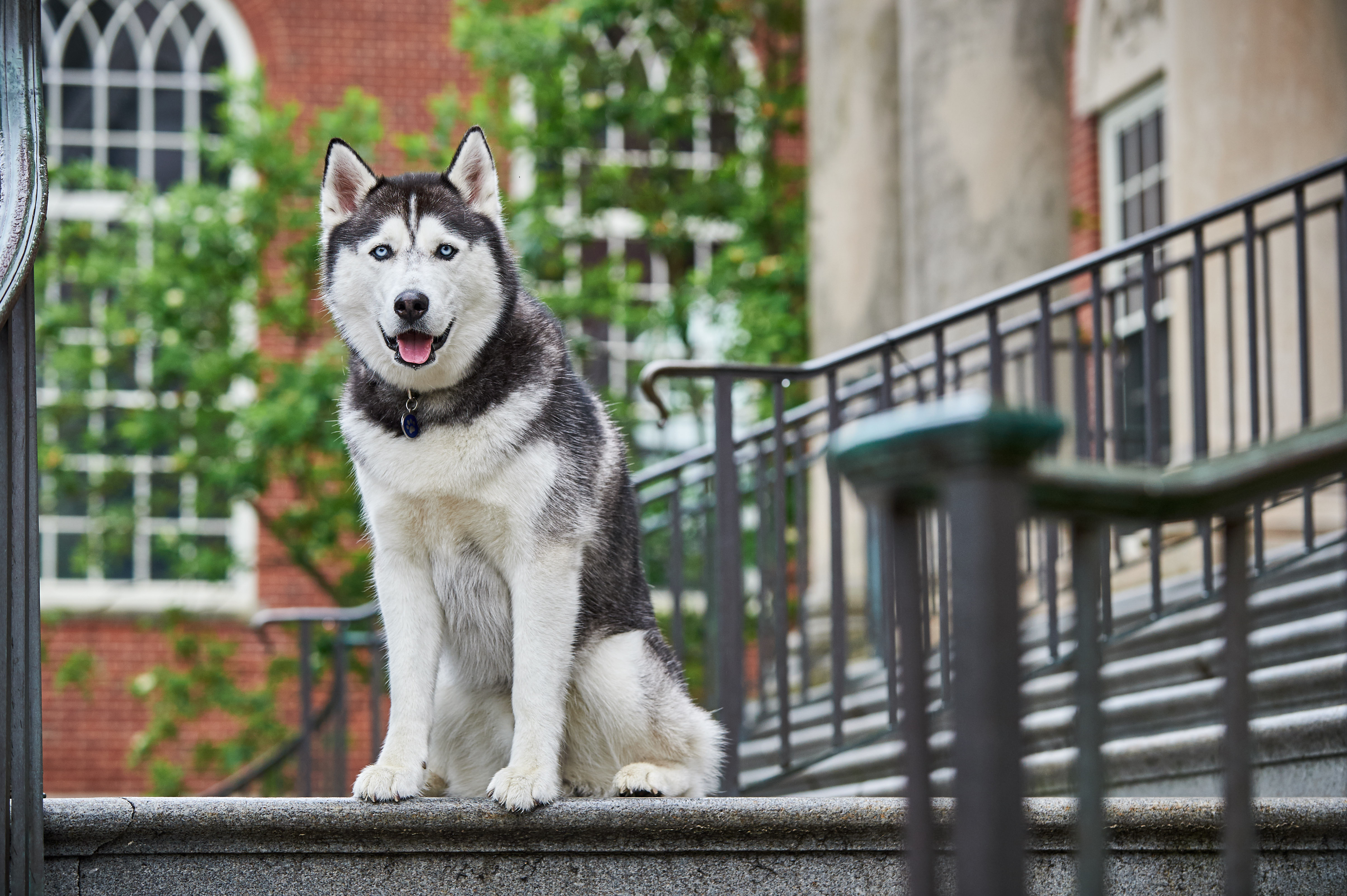The most recent Animals on Campus Policy can be found here.
Below are some commonly asked questions regarging service animals, emotional support animals and bringing animals to campus for events.
Animal Related Programs
Those who would like to bring animals not defined as Service Animals or Emotional Support Animals within controlled spaces must receive advance permission. This can include therapy animals that are part of an established program with defined parameters. These programs must be administered by trained staff and require the full review and approval of the Provost’s Office (for an academic setting request) or the Office of Institutional Equity (for a non-academic setting request), or their designees.
TheAnimal Related Program Registration Formmust be completed by the program director at least 3 weeks in advance. For more information, please contact the Office of Institutional Equity.
Service Dogs
A Service Dog (or miniature horse) that is individually trained to do work or perform tasks for the benefit of an individual with a disability. A Service Dog must be trained to perform specific tasks – “the provision of emotional support, well-being, comfort, or companionship do not constitute work or tasks for the purposes of this definition.”
The United States Department of Justice, which is the agency with primary authority for enforcement and interpretation of the Americans with Disabilities Act (ADA) [see DOJ ADA guidance(link is external) on Service Dogs], prohibits the University from asking about the nature or extent of a person’s disability or requiring proof that an animal has been certified, trained, or licensed as a Service Dog.
Unless it is readily apparent that the animal is trained to do work or perform tasks for an individual with a disability, the University may only ask two questions to determine whether the animal qualifies as a service dog:
- Is this animal required because of a disability?
- What work or tasks is this animal trained to perform?
Please note that service dogs must be under the control of their handler via leash, harness or other tether. The acception to this would be if the leash, harness or tether would impede or prevent the animal from preforming its assigned tasks or if the handler is unable to because of their disability. In this case, the handler must be able to control the animal via verbal command or other similar means. Service Animals that are disruptive may be asked to leave campus.
Emotional Support Animals
Emotional Support Animals are animals that do not otherwise qualify as a Service Animal, though they do provide support for a person’s disability as part of their treatment. Emotional Support Animals must be approved by the appropriate autority on campus before they are allowed in University Buildings. Students should contact the Center for Students with Disabilities, and Employees should contact the ADA Accommodations Coordinator.
